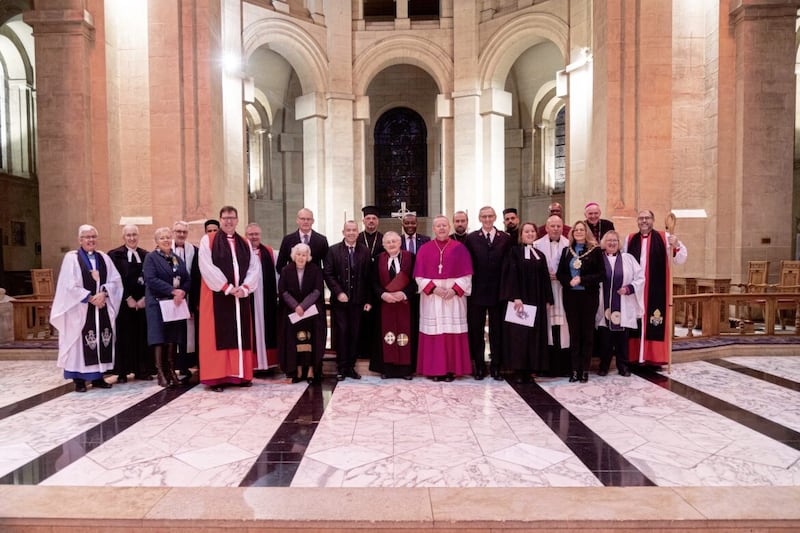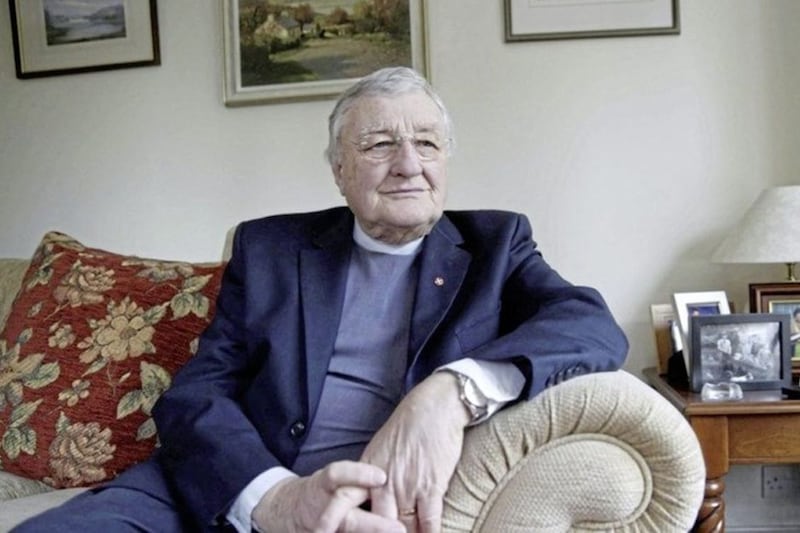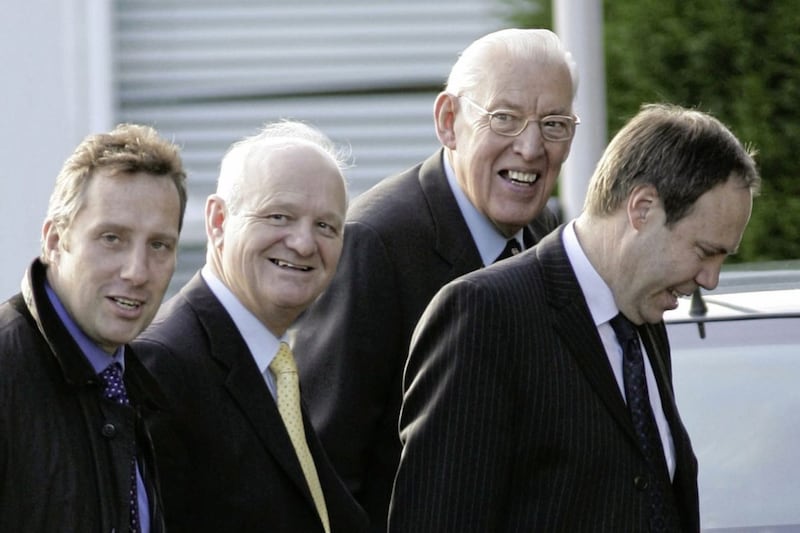TAKING the gun out Irish politics posed what at the time seemed insurmountable challenges and was only made possible due to the behind-the-scenes work of a number of determined individuals, among them Methodist minister Harold Good.
Rev Good and Catholic priest Fr Alec Reid were picked to be independent witnesses to decommissioning due to their respected positions within their communities.
Fr Reid, a Redemptorist based at Clonard Monastery in west Belfast, died in 2013 and his personal story of those historic events passed with him.
At the time, due the sensitivities of what was about happen, the two men vowed not to go into detail about what they had seen and heard.
Speaking from his Co Down home, Rev Good said he had no idea when he agreed to undertake the task it would result in a journey that would see him also take part in decommissioning processes involving Eta in the Basque country and Farc in Columbia.
"We were approached by someone who was deeply committed to the peace process and had influence within republicanism, and who wanted to secure the services of two people who would be acceptable both (communities)," he said.
"I knew Fr Reid, but not as well as I came to know him. We travelled quite a lot together after that.
"I came home from a conversation that I had and told Clodagh, my wife. She said, 'You must do it because there will be a completeness for you in this'.
"We'd have been trying to bring people to this place and had been working towards it, and to be a part of it would be a completeness and so I said, 'You're right and thank you, love'."
The churchman cancelled a trip in anticipation of arms being given up but the entire process was almost derailed when the IRA was linked to the robbery of the Northern Bank in Belfast city centre in December 2004, before negotiations resumed the following year.
"When we came back to it I was told that it was going to take place on a certain date, but the difficulty was I was in China on those dates," he said.
"My wife and I were leading a group, and there were 44 people on the trip, so they came back and said 'what if we move it so you can go to China for a week and then fly home'.
"And so the entire process was put back for that week, we got the trip underway and I had to make my excuses and leave China and come home on my own and immediately met up with folks and we went on our journey.
"We were to be the cameras, our eye were to be the lenses through which people were witnessing and observing what had happened."
Rev Good said his role was particularly challenging "because I was having to persuade the unionist community, part of which would be cynical and suspicious".
"After the event different parties asked to meet us.
"Fr Reid and I went to meet the DUP at Stormont and the whole top brass of the party were there with Ian Paisley and he gave us quite the grilling, or at least tried to.
"Ian said 'You're asking me to believe something I didn't see'.
"And just at that moment I thought there's a lovely story in the Bible where Doubting Thomas says to Jesus, 'If I don't see for myself how do I believe' and Jesus says 'Because you have seen me, you have believed. Blessed are those who have not seen and yet believe'.
"I said 'Now Ian, you wouldn't want to be left out of the people who are most blessed'.
"I said you are the man who keeps telling us that every dot and comma of the scripture is the inspired word and you can't possibly argue against it.
"But was it a cordial meeting and his tune changed almost overnight."
Rev Good said he was convinced the IRA were serious about peace after his interaction with members during that period.
"What I saw was important, but what I heard was even more important in that people were very clear about what they were doing - there was no going back, they were doing this for their children and their children's children."
The former Shankill minister and president of the Methodist Church in Ireland said it was an event that had global significance and was used as a template for other places of conflict.
"I've been to Colombia to talk to Farc, and it was our situation that raised the awareness of the value of decommissioning.
"Myself and Alec got invited to the Basque country, it was under the pretence they were giving us an award but it was to get decommissioning on the agenda.
"Last April I was a witness to the decommissioning of weapons by Eta. Alec sadly wasn't here and the Archbishop of Milan took his place.
"So it was a huge event, it changed the scenery, and it's been a very considerable part of my life."








